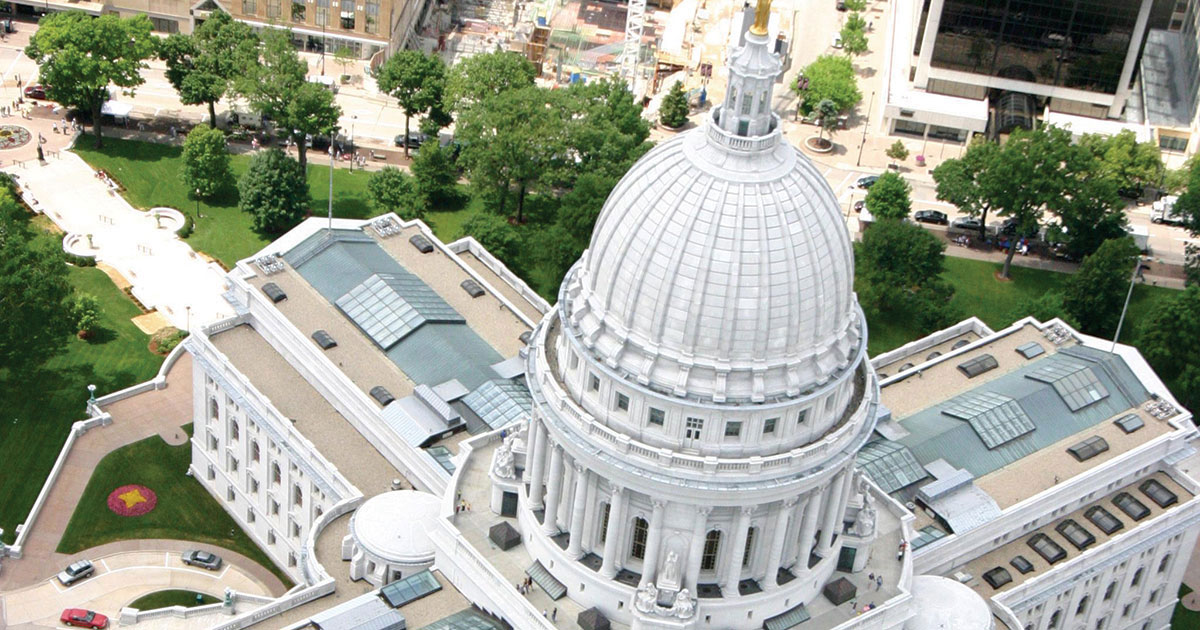
Nothing stops a dinner party conversation quicker than when people inquire of your profession and you reply, “I’m a lobbyist.” Lobbyists and lobbying give people a certain impression, possibly created by movies or TV shows, perhaps through political news stories, or maybe even from politicians themselves, who often swear off lobbyists on the campaign trail. It can be fun to imagine glamorous scenarios of being in a private club or at a fancy restaurant, smooth talking our way through a tense political matter over cocktails or whipping the votes needed for a legislative deal in a smoky backroom. However, those stories do not reflect the day-to-day realities of the job.
Earlier this year, Gallup released its annual survey of how the public views various professions. At the very bottom of the list was “lobbyist,” with a high or very high disapproval rate of 68%; only 4% of respondents think highly or very highly of those who work in the profession.
As is often the case, the perception of lobbying is different than the reality. Often, when you speak with a lobbyist about the work they do and the clients they serve, almost instantly it will be apparent they have a passion for their work and the impact it has on the people they are advocating on behalf of. Whether it is an in-house lobbyist working for a professional or trade association or a contract lobbyist with a wide variety of clientele, even after a brief conversation (or in the case with many lobbyists, not so brief), the fulfillment they feel when they achieve success in their work is evident. However, because it is uncommon to encounter a lobbyist outside of the state capital or governmental offices, the average person does not get the opportunity to see this passion or recognize the valuable public policies and necessary changes that lobbyists advocate for almost every day.
The truth is, lobbyists are a vital, and often helpful, part of the lawmaking process. Many people outside of governmental affairs will recall the Schoolhouse Rock! cartoon “I’m Just a Bill” when they think about the process of passing a law. While at its core, the jingle provides a simple and catchy civics lesson, the version behind the curtain is far more complex and often difficult to summarize, particularly when a lobbyist inevitably is asked, “What is a typical day like for you?” That said, one of our most important roles is to reflect the voice of those we represent at the Capitol.
Despite the impression many have of politics, most of the legislation passed each session is bipartisan and meaningful to a sector of the public. Legislators care about their constituents and want to implement good public policy. Often, there is a common goal among everyone involved to solve a problem, but the devil is in the details. This is where lobbyists step in: to highlight unintended consequences with one proposed approach and to brainstorm how to solve the problem in a way that all impacted parties will be satisfied. Even under ideal circumstances, this is complicated and time consuming. Having a lobbyist who not only knows the policy issues but also has institutional knowledge of the legislative process and players and who can help navigate those unforeseen and unexplainable issues that occur in the legislative process is invaluable.
Relationship Building and Education
A word that often comes up when discussing lobbying is “influence.” This word is used in Wis. Stat. chapter 13.61 to define lobbying and to regulate the practice. We have zero qualms about the word or its usage in the law. From a simplistic view, that is what lobbying is, but there is a lot more that goes into the process to achieve success.
 Cale Battles, is the Government Relations Program manager with the State Bar of Wisconsin. He can be reached by email, or by phone at (608) 250-6077.
Cale Battles, is the Government Relations Program manager with the State Bar of Wisconsin. He can be reached by email, or by phone at (608) 250-6077.
 Lynne Davis, is a government relations coordinator with the State Bar of Wisconsin. She can be reached by email, or by phone at (608) 250-6045.
Lynne Davis, is a government relations coordinator with the State Bar of Wisconsin. She can be reached by email, or by phone at (608) 250-6045.
 Devin Martin is grassroots outreach coordinator with the State Bar of Wisconsin.
Devin Martin is grassroots outreach coordinator with the State Bar of Wisconsin.
As in most aspects of life, you must be able to develop and cultivate relationships to achieve success. The difference is trying to do that with various, and sometimes conflicting, personalities and viewpoints. Beyond political affiliations, legislators have diverse experiences that influence how they approach public policy. Legislators come from rural, suburban, or urban areas and enter public service with a variety of professional experiences. Some join the legislature with no political background, whereas others may have significant political knowledge, be it through previously held local-government office or their employment history. In addition, it is not solely legislators whom lobbyists work with, as every legislator has staff to assist with scheduling, constituent relations, or policy review. Beyond legislative staff, there are state and service agency staff involved in the process. Last, there are other trade associations, public advocates, and contract lobbyists with whom you interact daily.
Besides the inherent conflicts between political parties, lobbyists frequently encounter opposing views from other interest groups, whether about the problem you are trying to solve or the approach to resolving the issue. One day you might be collaborating on one matter and the next day competing on a different effort. It can be extremely unforgiving but also very fulfilling when you see an issue cross the finish line. The legislature also works on their own timeline, which many liken to an airport experience – hurry up, then wait. One week there may be hundreds of bills that move and four committee hearings with only 24 hours’ notice, the next week you might receive notice of a hearing two weeks into the future and only a handful of bills to track. Irrespective of the pace, lobbyists never stop contemplating strategies for both the long and short term of current and future initiatives and relationships, because politics is a long game, and those involved have even longer memories.
This is also why it is important to be visible and accessible as a lobbyist. Those drawn to the profession are often extroverted, as this is a very social profession and part of the job is gathering information. Chance encounters through a simple walk through the Capitol, coffee shop visit, or a lunchtime stroll around the Capitol Square in Madison can often provide valuable insight if you run into the right person. Information gained through a casual conversation on one topic can completely transform your strategy on an unrelated matter.
Lobbying for the State Bar of Wisconsin also presents unique challenges. While we lobby for only one professional association, within the organization there are numerous issue areas that we may encounter on any given day, just like the practice of law itself. In the morning it might be an issue on guardianship and in the afternoon a criminal-penalty change. At any moment, the State Bar could be engaging on dozens of issues. Our members are experts on these issues, but it is important as a representative of the association for us as lobbyists to be knowledgeable enough to message the reasons the State Bar or a lobbying section either supports or opposes a bill. This often leads to further conversations and meetings with legislators and other interested participants.
Policy position memos and testimony at public hearings are another important aspect of advocacy. The State Bar encourages members, as the experts on these issues, to testify at legislative hearings. As lobbyists, we will work through scheduling, walk through the hearing process, assist in preparing written and oral testimony, and prepare members for possible questions from legislators. Much of this work occurs behind the scenes before the hearing takes place. When given enough time, we often schedule meetings prior to a hearing to educate legislators on the issue before them. If that is unable to happen, then we visit each committee member’s office to provide background materials on the bill before them.
Engagement: Last Step of Success
A lobbyist can get you in the door and likely a seat at the table, but the best advocate is someone who can explain practical implications and unintended consequences, good and bad, of a legislative proposal. With so few attorney-legislators, elected officials are increasingly looking to the State Bar for feedback and insights into many legislative matters. This growing demand is the very reason why the State Bar has invested in and grown our advocacy network. Engaging our members and providing a mechanism to share the real-world impact of any given piece of legislation has a far-reaching impact, much greater than most would expect, and the results of sharing this knowledge are immeasurable, both in terms of crafting strong public policy and in furthering the reputation of the State Bar at the Capitol as an organization of ready and willing volunteers who can help a legislator effect positive change. If you are interested in getting to know your legislators and sharing with them how you can be a resource, please visit our grassroots advocacy network at www.wisbar.org/govrelations.
Now if you will excuse us, we have a black-tie dinner to attend….
Sign Up
Stay engaged to help move legislation forward. Learn about the State Bar’s Government Relations program, access the Advocacy Network Grassroots Toolkit, and read the monthly e-newsletter, Rotunda Report.
State Bar Advocacy Network wisbar.org/GovRelations
Rotunda Report wisbar.org/rotundareport
» Cite this article: 98 Wis. Law. 55-57 (June 2025).
